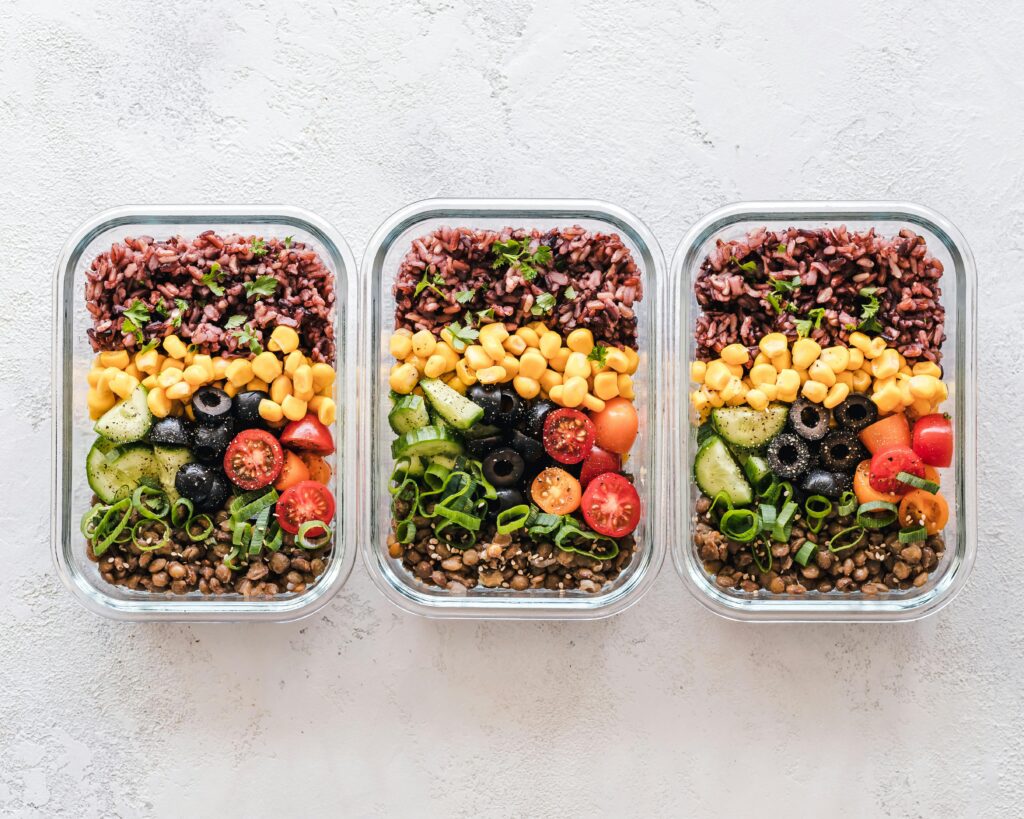Meal prepping is the ultimate kitchen hack for anyone who wants to save time, reduce stress, and eat healthier. By planning and preparing meals in advance, you can say goodbye to last-minute takeout and hello to balanced, homemade meals all week long. Here’s a beginner-friendly guide to meal prepping that will help you get started with confidence.
1. Start Small
If you’re new to meal prepping, don’t overwhelm yourself by trying to prep every single meal. Start with one category, like lunches or dinners, and build from there. This makes the process more manageable and less intimidating.
2. Plan Your Menu
Take a few minutes to decide what meals you’d like to prep for the week. Look for recipes that use overlapping ingredients to save money and reduce waste. For example, roasted chicken can be used in salads, wraps, and stir-fries.
3. Make a Grocery List
Once your menu is planned, write a detailed grocery list. Stick to it to avoid overbuying or forgetting essential ingredients. Shopping with a list also helps you stay within your budget.
4. Invest in Quality Containers
Good containers are essential for meal prepping. Look for BPA-free, microwave-safe, and leak-proof options. Divided containers are great for portioning out meals, while mason jars are perfect for salads and overnight oats.
5. Batch Cook Staples
Cook large quantities of versatile staples like rice, quinoa, roasted vegetables, and grilled chicken. These can be mixed and matched throughout the week to create a variety of meals.
6. Pre-Portion Snacks
Save time and avoid overeating by portioning out snacks in advance. Pack nuts, fruit, or veggie sticks into individual containers or bags for grab-and-go convenience.
7. Label Everything
Label your containers with the meal name and date to keep track of freshness. This is especially helpful if you’re prepping multiple meals at once.
8. Utilize Your Freezer
The freezer is your best friend when it comes to meal prepping. Cook and freeze soups, stews, and casseroles in individual portions for easy reheating on busy days.
9. Set Aside Time
Dedicate a few hours once or twice a week to meal prepping. Sunday afternoons and midweek evenings work well for most people. Play some music or a podcast to make the time more enjoyable.
10. Stay Flexible
Meal prepping doesn’t have to mean eating the same thing every day. Be flexible and adjust as needed. If you’re craving something different midweek, swap meals around or freeze portions for later.
Final Thoughts
Meal prepping is a game-changer for busy schedules and healthy eating goals. With a bit of planning and practice, you’ll find it’s easier than you think. Which tips will you try first? Share your meal prepping successes (or struggles) in the comments below!

